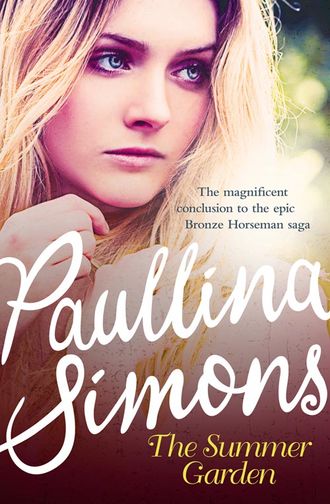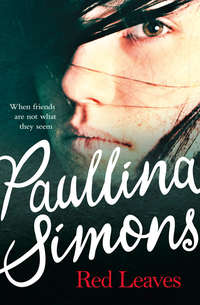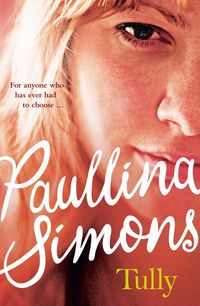
Полная версия
The Summer Garden
Tatiana’s hands trembled as she washed the dishes. She didn’t want to make him upset. No, perhaps that was not quite true. Perhaps she wanted to make him something. He was so exceedingly polite, so exceptionally courteous! When she asked him for help, he was right there. He carried the cursed potatoes, he took the trash to the dump. But his mind was not on the potatoes, on the trash. When he sat and smoked and watched the water, Tatiana didn’t know where he was. When he went outside at three in the morning and convulsed on the bench, Tatiana wished she didn’t know where he was. Where was she within him? She didn’t want to know.
When she was done clearing up, she came outside to sit on the gravel by his feet. She felt him looking at her. She looked up. “Tania …” Alexander whispered. But Anthony saw his mother on the ground and instantly planted himself on her lap, displaying for her the four beetles he had found, two of them fighting stag beetles. When she glanced up at Alexander, he wasn’t looking at her anymore.
After Anthony was asleep and they were in their twin bed, she whispered, “So do you want to—move in with Nellie?” The bed was so narrow, they could sleep only on their sides. On his back Alexander took up the whole mattress.
“Move in until her husband comes back and she kicks us out because she might actually want some privacy with the man who’s back from war?” Alexander said.
“Are you … angry?” she asked, as in, please be angry.
“Of course not.”
“We’ll have more privacy at her house. She’s got two rooms for us. Better than the one here.”
“Really? Better?” Alexander said. “Here we’re by the sea. I get to sit and smoke and look at the bay. Nellie’s on Eastern Road, where we’ll just be smelling the salt and the fish. And Mrs. Brewster is deaf. Do you think Nellie is deaf? Having Nellie at our bedroom door with her young hearing and her five years without a husband, do you think that would spell more privacy for us? Although,” he said, “do you think there could be less privacy?”
Yes, Tatiana wanted to say. Yes. In my communal apartment in Leningrad, where I lived in two rooms with Babushka, Deda, Mama, Papa, my sister, Dasha—remember her?—with my brother, Pasha—remember him? Where the toilet down the hall through the kitchen near the stairs never flushed properly and was never cleaned, and was shared by nine other apartment dwellers. Where there was no hot water for four baths a day, and no gas stove for four lobsters. Where I slept in the same bed with my sister until I was seventeen and she was twenty-four, until the night you took us to the Road of Life. Tatiana barely suppressed her agonized groan.
She could not—would not—she refused to think of Leningrad.
The other way was better. Yes, the other way—without ever speaking.
This bloodletting went on every night. During the day they kept busy, just how they liked it, just how they needed it. Not so long ago Alexander and Tatiana had found each other in another country and then somehow they lived through the war and made it to lupine Deer Isle, neither of them having any idea how, but for three o’clock in the morning, when Anthony woke up and screamed as if he were being cut open, and Alexander convulsed on the bench, and Tatiana thrashed to forget—and then they knew how.
Tainted with the Gulag
He had such an unfailing way with her. “Would you like some more?” he would say, lifting the pitcher of lemonade.
“Yes, please.”
“Would you like to take a walk after dinner? I heard they’re selling something called Italian ices by the bay.”
“Yes, that would be nice.”
“Ant, what do you think?”
“Let’s go. Let’s go now.”
“Well, wait a second, son. Your mother and I have to finish up.” So formal. Mother.
He opened doors for her, he got jars and cans for her off the high shelves in the kitchen. It was so handy him being tall; he was like a step stool.
And she? She did what she always did—for him first. She cooked for him, brought the food to his plate and served him. She poured his drink. She set and cleared his table. She washed his clothes, she folded them. She made their little beds and put clean sheets on them. She made him lunch for the boat, and extra for Jimmy too, because one-handed Jimmy didn’t have a woman to make him a sandwich. She shaved her legs for him, and bathed every day for him, and put satin ribbons in her hair for him.
“Is there anything else you would like?” she asked him. Can I get you something? Would you like another beer? Would you like the first section of the newspaper or the second? Would you like to go swimming? Perhaps raspberry picking? Are you cold? Are you tired? Have you had enough, Alexander? Have—you—had—enough?
“Yes, thank you.”
Or …
“No, I’ll have some more, thanks.”
So courteous. So polite. Straight from the Edith Wharton novels Tania had read during the time of his absence from her life. The Age of Innocence or The House of Mirth (ironic).
There were times when Alexander wasn’t unfailingly polite.
Like one particular afternoon when there was no wind and Jimmy was hung over—or was it when Jimmy was hung over and there was no wind? In any case, Alexander had returned early when she wasn’t expecting him and came looking for her when she was still in Nellie’s potato fields. Anthony was inside the house, having milk with Nellie. Tatiana, her hands grimy from the earth, her face flushed, her hair in tangles, stood up in the field to greet him in her sleeveless chintz summer dress, tight in the torso, slim down the hips, open down the neckline. “Hey,” she said with happy surprise. “What are you doing back so early?”
He didn’t speak. He kissed her, and this time it wasn’t calm and it wasn’t without ardor. Tatiana didn’t even have a chance to raise her hands in surrender. He took her deep in the fields, on the ground, covered in potato leaves, the dress becoming as grimy as her hands. The only foreplay was his yanking the dress off her shoulders to bare her breasts to his massive hands and pulling the dress up over her hips.
“Look what you did,” she whispered afterward.
“You look like a peasant milkmaid in that dress.”
“Dress is ruined now.”
“We’ll wash it.” He was still panting but already distant.
Tatiana leaned to him, murmuring softly, looking into his face, trying to catch his eye, hoping for intimacy. “Does the captain like his wife to look like a peasant milkmaid?”
“Well, obviously.” But the captain was already getting up, straightening himself out, giving her his hand to help her off the ground.
Since Alexander came back, Tatiana had become fixated on his hands, and on her own by contrast. His hands were like the platter on which he carried his life. They were large and broad, dark and square, with heavy palms and heavy thumbs, but with long thick flexible fingers—as if he could play the piano as well as haul lobster trawls. They were knuckled and veined, and the palms were calloused. Everything was calloused, even the fingertips, roughened by carrying heavy weapons over thousands of miles, hardened by fighting, burning, logging, burying men. His hands reflected all manner of eternal struggles. You didn’t need to be a soothsayer, or a psychic or a palmreader, you needed not a single glance at the lines in the palms but just one cursory look at the hands and you knew instantly: the man they belonged to had done everything—and was capable of anything.
And then take Tatiana and her own square hands. Among other things, her hands had worked in a weapons factory, they had made bombs and tanks and flamethrowers, worked the fields, mopped floors, dug holes in snow and in the ground. They had pulled sleds along the ice. They had taken care of dead men, of wounded men, of dying men; her hands had known life, and strife—yet they looked like they soaked in milk all day. They were tiny, unblemished, uncalloused, unknuckled, unveined, palms light, fingers slender. She was embarrassed by them—they were soft and delicate like a child’s hands. One would conclude that her hands had never done a day’s work in their life—and couldn’t!
And now, in the middle of the afternoon, after touching her in places unsuitable to the genteel propriety of Nellie’s cultivated potato fields, Alexander gave her his enormous dark hand to help her off the ground, and her white one disappeared into his warm fist as he pulled her to her feet.
“Thank you.”
“Thank you.”
When they first got to Deer Isle, in the evenings, after Anthony was finally asleep, they climbed up the steep hill to where their Nomad was parked off road near the woods. Once inside, Alexander took the clothes off her—he insisted she be bare for him—though most of the time he did not undress himself, leaving on his T-shirt or his sleeveless tank. Tatiana asked once. Don’t you want to undress, too? He said no. She didn’t ask again. He kissed her; with his hands he touched her to soften her; but never said a word. He never called her name. He would kiss her, clasp her body to him, present himself to her eager mouth—sometimes too forcefully, though she didn’t mind—and then he would deliver himself unto her. She moaned, she couldn’t help herself, and there had once been a time when he lived for her moaning. He himself never made a sound anymore, not before, not during, and not even at the end. He aspirated at the end; made an H. Sometimes not even a capital H.
Many things were gone from them. Alexander didn’t use his mouth on her anymore, or whisper all manner of remarkable things to her anymore, or caress her from top to bottom, or turn the kerosene light on—or even open his eyes.
Shura. Naked in the Nomad was the only time in their new life Tatiana called him by that beloved diminutive now. Sometimes she felt as if he wanted to put his hands to his ears so he wouldn’t hear her. It was dark in the camper, so dark; there was never light to see anything. And he wore his clothes. Shura. I can’t believe I’m touching you again.
There were no Edith Wharton novels in the camper, no Age of Innocence. He took her until she had nothing more to give, but still he took her until there was nothing.
“Soldier, darling, I’m here,” Tatiana would whisper, her arms opened, stretched out to him in helplessness, in surrender.
“I’m here, too,” Alexander would say, not whispering, getting up, getting dressed. “Let’s go back downhill. I hope Anthony is still sleeping.” That was the afterglow. Him giving her his hand to help her up.
She was defenseless, she was starved herself, she was open. She would give it to him any way he needed it, but still …
Oh, it didn’t matter. Just that there was something so soldierly and unhusbandly about how silently and rapaciously Alexander needed to still the cries of war.
Near tears one night, she asked him what was the matter with him—with them—and he replied, “You have become tainted with the Gulag.” And then they were interrupted by a child’s maniacal screams from down below. Already dressed, Alexander ran.
“Mama! Mama!”
Old Mrs. Brewster had trotted into his room, but she only terrified Anthony more.
“MAMA! MAMA!”
Alexander held him, but Anthony didn’t want anyone but his mother.
And when she ran in, he didn’t want her either. He hit her, he turned away from her. He was hysterical. It took her over an hour to calm him down. At four Alexander got up to go to work, and after that night Tatiana and Alexander stopped going to the camper. It stood abandoned in the clearing up the hill between the trees as they, both clothed, and in silence, with a pillow or his lips or his hand over her mouth to stifle her moaning, danced the tango of life, the tango of death, the tango of the Gulag, creaking every desperate bedspring in the twin bed across from Anthony’s restless sleeping.
They tried to come together during the day when the boy wasn’t looking. Trouble was, he was always looking. By the end of long napless Sundays, Alexander was mute with impatience and discontent.
One late Sunday afternoon Anthony was supposed to be in the front yard playing with bugs. Tatiana was supposed to be cooking dinner, Alexander was supposed to be reading the newspaper, but what he was actually doing was sitting beneath her billowing skirts on the narrow wooden chair that leaned against the wall of the kitchen, and she was standing astride him. They were panting, her legs were shaking; he was supporting her shifting weight with his hands on her hips, moving her in spasms. Near the moment of Tatiana’s greatest distress, Anthony walked into the kitchen.
“Mama?”
Tatiana’s mouth opened in a tortured O. Alexander whispered Shh. She held her breath, unable to turn around, overwhelmed by the stillness, the hardness, the fullness of him so thoroughly inside her. She dug her long nails into Alexander’s shoulders and tried not to scream, and all the while Anthony stood behind his mother.
“Anthony,” said Alexander, his voice almost calm. “Can you give us a minute? Go outside. Mommy will be right there.”
“That man, Nick, is in his yard again. He wants a cigarette.”
“Mom will be right there, bud. Go outside.”
“Mama?”
But Tatiana could not turn around, could not speak.
“Go outside, Anthony!” said Alexander.
In the short term, Anthony left, Tatiana took a breath, Alexander took her to the bedroom, barricaded the door, and resolved them, but in the long term she didn’t know what to do.
One thing they didn’t do is talk about it.
“Would you like some more bread, some more wine, Alexander?” she would ask with open hands.
“Yes, thank you, Tatiana,” he would reply with lowered head.
The Captain, the Colonel, and the Nurse
“Dad, can I come on the boat with you?” Anthony turned his face up to his father, sitting next to him at the breakfast table.
“No, bud. It’s dangerous on a lobster boat for a little boy.”
Tatiana studied them both, listening, absorbing.
“I’m not little. I’m big. And I’ll be good. I promise. I’ll help.”
“No, bud.”
Tatiana cleared her throat. “Alexander, if I come, um, I can look after Ant.”
“Jimmy’s never had a woman on his boat before, Tania. He’ll have a heart attack.”
“No, you’re right, of course. Ant, you want some more oatmeal?”
Anthony’s head remained down as he ate his breakfast.
Sometimes the wind was good, and sometimes it wasn’t. Windward, leeward, when there was no wind, it was difficult to trawl, despite Jimmy’s valiant efforts to set the sail. With just the two of them on the boat, Alexander loosened the staysail and while the sloop floated in the Atlantic, they sat and had a smoke.
Jimmy said, “Good God, man, why do you always wear that shirt down to your wrists? You must be dying of heat. Roll it up. Take it off.”
And Alexander said, “Jimmy, man, forget about my shirt, why don’t you get yourself a new boat? You’d make a heap more money. I know this was your old man’s, but do yourself a favor, invest in a fucking boat.”
“I got no money for a new boat.”
“Borrow it from a bank. They’re bending over backwards to help men get on their feet after the war. Get a fifteen-year boat mortgage. With the money you’ll make, you’ll pay it back in two years.”
Jimmy got excited. Suddenly he said, “Go halves with me.”
“What?”
“It’ll be our boat. And we’ll split the profits.”
“Jimmy, I—”
Jimmy jumped up, spilling his beer. “We’ll get another deckhand, another 12-trap trawl; we’ll get a 1300-gallon live tank. You’re right, we’ll make a heap.”
“Jimmy, wait—you have the wrong idea. We’re not staying here.” Alexander sat with the cigarette dangling from his fingers.
Jimmy became visibly upset. “Why would you be leaving? She likes it here, you keep saying so. You’re working, the boy’s doing all right. Why would you go?”
Alexander put the cigarette back in his mouth.
“You’ll have the winters off to do what you want.”
Alexander shook his head.
Jimmy raised his voice. “So why’d you get a job if you were just going to raise anchor in a month?”
“I got a job because I need work. What are we going to live on, your good graces?”
“I haven’t worked full time like this since before the war.” Jimmy spat. “What am I going to do after you leave?”
“Plenty of men are coming back now,” Alexander said. “You’ll get someone else. I’m sorry, Jim.”
Jimmy turned away and started untying the rope from the staysail. “Just great.” He didn’t look at Alexander. “But tell me, who else is going to work like you?”
That evening, as Alexander was sitting in his chair, showing Anthony how to tie a hitch knot through the marlinspike in his hands while they were waiting for Tatiana to go for their evening walk, there was shouting, and what was unusual this time was that a male voice was participating.
Tatiana came out.
“Mama, do you hear? He’s fighting back!”
“I hear, son.” She exchanged a glance with Alexander. “You two ready?”
They walked out the gate and started slowly down the road—all of them trying to hear the words instead of just the raised voices.
“Odd, no?” Alexander said. “The colonel arguing.”
“Yes,” Tatiana said in the tone of someone who was saying, isn’t it fantastic.
He glanced puzzled at her.
They strained to listen. A minute later, the mother came barreling out of the backyard, pushing the wheelchair with Nick in it through the tall grass. She nearly knocked herself and her husband over.
Thrusting the chair into the front yard, she said, “Here, sit! Happy now? You want to sit here all by yourself in the front so that passersby can gawk at you like you’re an animal in a zoo, go ahead. I don’t care anymore. I don’t care about anything.”
“That much is obvious!” the colonel yelled as she stormed away. He was panting.
Tatiana and Alexander lowered their heads. Anthony said, “Hi, Nick.”
“Anthony! Shh.”
Anthony opened the gate and went in. “Want a cigarette? Mama, come here.”
She looked at Alexander. “Can I have a cigarette for him?” she whispered.
But it was Alexander who went to the colonel—his body and face slightly twisted—took out a cigarette from his pack, lit it, and held it to the colonel’s mouth.
The man inhaled, exhaled, but without his previous fervor with Tatiana. He didn’t speak.
Tatiana put her hand on Nick’s shoulder. Anthony brought him a stag beetle, a dead wasp, a raw old potato. “Look,” he said, “look at the wasp.”
Nick looked, but said nothing. The cigarette calmed him down. He had another one.
“Want a drink, Colonel?” Alexander asked suddenly. “There is a bar down on Main Street.”
Nick nodded in the direction of the house. “They won’t let me go.”
“We won’t ask them,” Alexander said. “Imagine their surprise when they come out and find you gone. They’ll think you wheeled yourself down the hill.”
This made Colonel Nicholas Moore smile. “The image of that is worth all the screeching later. OK, let’s go.”
Swezey’s was the only bar in Stonington. Children weren’t allowed in bars.
“I’m going to take Anthony on the swings,” Tatiana said. “You two have fun.”
Inside Alexander ordered two whiskeys. Holding both glasses, he clinked them, and put the drink to Nick’s mouth. The liquor went in one gulp. “Should we order another one?”
“You know,” said Nick, “why don’t you order me a whole bottle? I haven’t had a drink since I got hit eighteen months ago. I’ll pay you back.”
“Don’t worry,” Alexander said, and bought Nick and himself a bottle of Jack Daniel’s. They sat in the corner, smoking and drinking.
“So what’s the matter with your wife, Colonel?” Alexander asked. “Why is she always so ticked off?”
They were leaning toward each other, the colonel in a wheelchair, the captain by his side.
Nick shook his head. “Look at me. Can you blame her? But not to worry—the army is going to get me a round-the-clock nurse soon. She’ll take care of me.”
They sat.
“Tell me about your wife,” Nick said. “She’s not afraid of me. Not like others around here. She’s seen this before?”
Alexander nodded. “She’s seen this before.”
Nick’s face brightened. “Does she want a job? The army will pay her ten dollars a day for my care. What do you say? A little more money for your family.”
“No,” Alexander said. “She was a nurse long enough. No more nursing for her.” He added, “We don’t need the money, we’re fine.”
“Come on, everyone needs money. You can get yourself your own house instead of living with crazy Janet.”
“And what’s she going to do with the boy?”
“Bring him, too.”
“No.”
Nick fell quiet, but not before making a desperate noise. “We’re on a waiting list for a nurse, but we can’t get one,” he said. “There aren’t enough of them. They’ve all quit. Their men are coming back, they want to have babies, they don’t want their wives to work.”
“Yes,” said Alexander. “I don’t want my wife to work. Especially not as a nurse.”
“If I don’t get a nurse, Bessie says she’s going to send me to the Army Hospital in Bangor. Says I’d be better off there.”
Alexander poured more needed drink down the man’s throat.
“They’ll certainly be happier if I’m there,” Nick said.
“They don’t seem like a happy pair.”
“No, no. Before the war, they were great.”
“Where d’you get hit?”
“In Belgium. Battle of the Bulge. And there I was thinking colonels didn’t get hit. Rank Has Its Privileges and all that. But a shell exploded, my captain and lieutenant both died, and I was burned. I would’ve been fine, but I was on the ground for fourteen hours before I got picked up by another platoon. The limbs got infected, couldn’t be saved.”
More drink, more smoke.
Nick said, “They should’ve just left me in the woods. It would’ve been over for me five hundred and fifty days ago, five hundred and fifty nights ago.”
He calmed down by degrees, helped by whiskey and the smokes. Finally he muttered, “She is so good, your wife.”
“Yes,” said Alexander.
“So fresh and young. So lovely to look at.”
“Yes,” said Alexander, closing his eyes.
“And she doesn’t yell at you.”
“No. Though I reckon she sometimes wants to.”
“Oh, to have such restraint in my Bessie. She used to be a fine woman. And the girl was such a loving girl.”
More drink, more smoke.
“But have you noticed since coming back,” said Nick, “that there are things that women just don’t know? Won’t know. They don’t understand what it was like. They see me like this, they think this is the worst. They don’t know. That’s the chasm. You go through something that changes you. You see things you can’t unsee. Then you are sleepwalking through your actual life, shell-shocked. Do you know, when I think of myself, I have legs? In my dreams I’m always marching. And when I wake up, I’m on the floor, I’ve fallen out of bed. I now sleep on the floor because I kept rolling over and falling while dreaming. When I dream of myself, I’m carrying my weapons, and I’m in the back of a battalion. I’m in a tank, I’m yelling, I’m always screaming in my dreams. This way! That way! Fire! Cease! Forward! March! Fire, fire, fire!”
Alexander lowered his head, his arms drooping on the table.
“I wake up and I don’t know where I am. And Bessie is saying, what’s the matter? You’re not paying attention to me. You haven’t said anything about my new dress. You end up living with someone who cooks your food for you and who used to open her legs for you, but you don’t know them at all. You don’t understand them, nor they you. You’re two strangers thrown together. In my dreams, with legs, after marching, I’m always leaving, wandering off, long gone. I don’t know where I am but I’m never here, never with them. Is it like that with you, too?”








